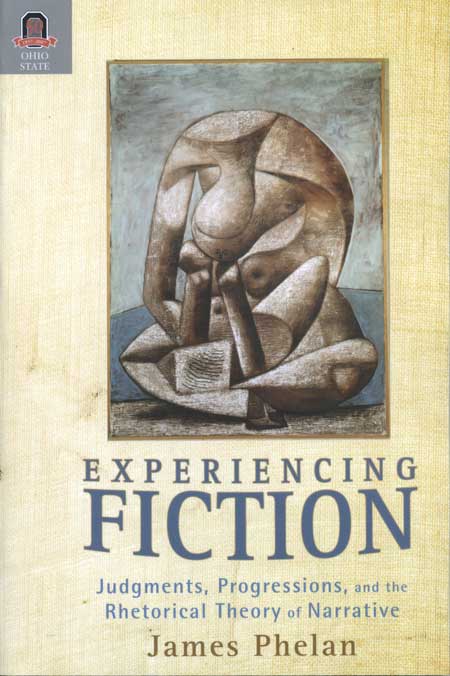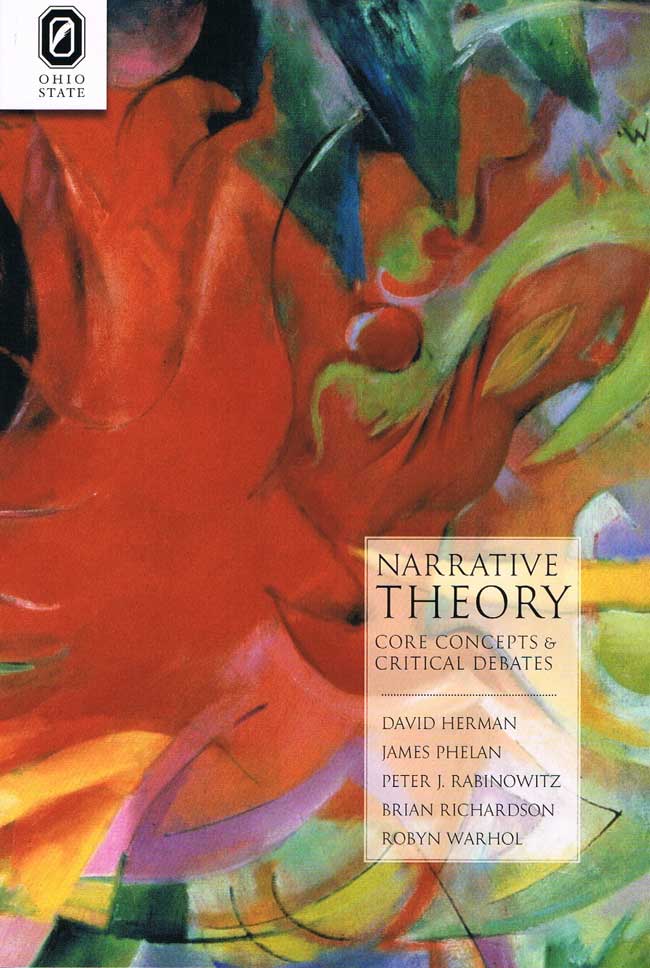“In Somebody Telling Somebody Else, James Phelan reveals how major parts of his theoretical arsenal relate to one another. As he does this, he gives his readers a view of what it’s like to do rhetorical narrative poetics, and an idea of the places it will take them that other approaches will not. This is a superb, stimulating book that demonstrates how powerful a tool the rhetorical approach to the poetics of narrative is. It will be widely read and influential.” —Harry E. Shaw, author of Narrating Reality: Austen, Scott, Eliot
In Somebody Telling Somebody Else, James Phelan proposes a paradigm shift for narrative theory, a turn from viewing narrative as a structure to viewing it as a rhetorical action in which a teller selectively deploys the resources of storytelling in order to accomplish particular purposes in relation to particular audiences. Phelan explores the consequences of this shift for an understanding of various elements of narrative, including reliable and unreliable narration, character-character dialogue, and occasions of narration.
In doing so, he offers new readings of a wide range of narratives from Jane Austen’s Pride and Prejudice to Joan Didion’s The Year of Magical Thinking, from Joseph Conrad’s Lord Jim to George V. Higgins’s The Friends of Eddie Coyle, from Franz Kafka’s “Das Urteil” to Toni Morrison’s “Recitatif,” from David Small’s Stitches to Jhumpa Lahiri’s “Third and Final Continent,” from John O’Hara’s “Appearances” to Ian McEwan’s Enduring Love. Phelan contends that the standard view of narrative as a synthesis of story and discourse is inadequate to handle the complexities of narrative communication, and he demonstrates the greater explanatory power of his rhetorical view. Furthermore, Phelan gives new prominence to the presence and activity of the “somebody else,” as he shows that an audience’s unfolding responses to a narrative often influence its very construction.
James Phelan is Distinguished University Professor of English at The Ohio State University and author of Experiencing Fiction: Judgments, Progressions, and the Rhetorical Theory of Narrative (OSU Press, 2007).
Contents
Preface
PART 1 ON THE EXPLANATORY POWER OF RHETORICAL POETICS
Introduction Principles of Rhetorical Poetics
Chapter 1 Somebody Telling Somebody Else: Authors, Resources, Audiences
Chapter 2 Somebody Telling Somebody Else: Audiences and Probable Impossibilities
PART 2 RESOURCES: GENERIC FRAMES, TECHNIQUES, OCCASIONS—AND SYNERGIES
Introduction Constructing a Rhetorical Poetics
Chapter 3 Probability in Fiction and Nonfiction: Pride and Prejudice and The Year of Magical Thinking
Chapter 4 Engaging the Stubborn: Narrative Speed and Readerly Judgments in Franz Kafka's "Das Urteil"
Chapter 5 Estranging Unreliability, Bonding Unreliability, and the Ethics of Lolita
Chapter 6 The How and Why of Backward Narration in Martin Amis's Time's Arrow
Chapter 7 "I affirm nothing": Lord Jim and the Uses of Textual Recalcitrance
Chapter 8 Toni Morrison's Determinate Ambiguity in "Recitatif"
Chapter 9 Conversational and Authorial Disclosure in Dialogue Narrative: George Higgins's The Friends of Eddie Coyle and John O'Hara's "Appearances"
Chapter 10 The Implied Author, Deficient Narration, and Nonfiction Narrative: Joan Didion's The Year of Magical Thinking and Jean-Dominique Bauby's The Diving Bell and the Butterfly
Chapter 11 Reliability, Dialogue, and Crossover Effects in Jhumpa Lahiri's "The Third and Final Continent"
Chapter 12 Reliable, Unreliable, and Deficient Narration: Toward a Rhetorical Poetics
Chapter 13 Occasions of Narration and the Functions of Narrative Segments in Enduring Love
Conclusion Reflections on the How and Why of Rhetorical Poetics
Works Cited
Index
Related Titles:

Experiencing Fiction
Judgments, Progressions, and the Rhetorical Theory of Narrative
James Phelan
HARDCOVER



